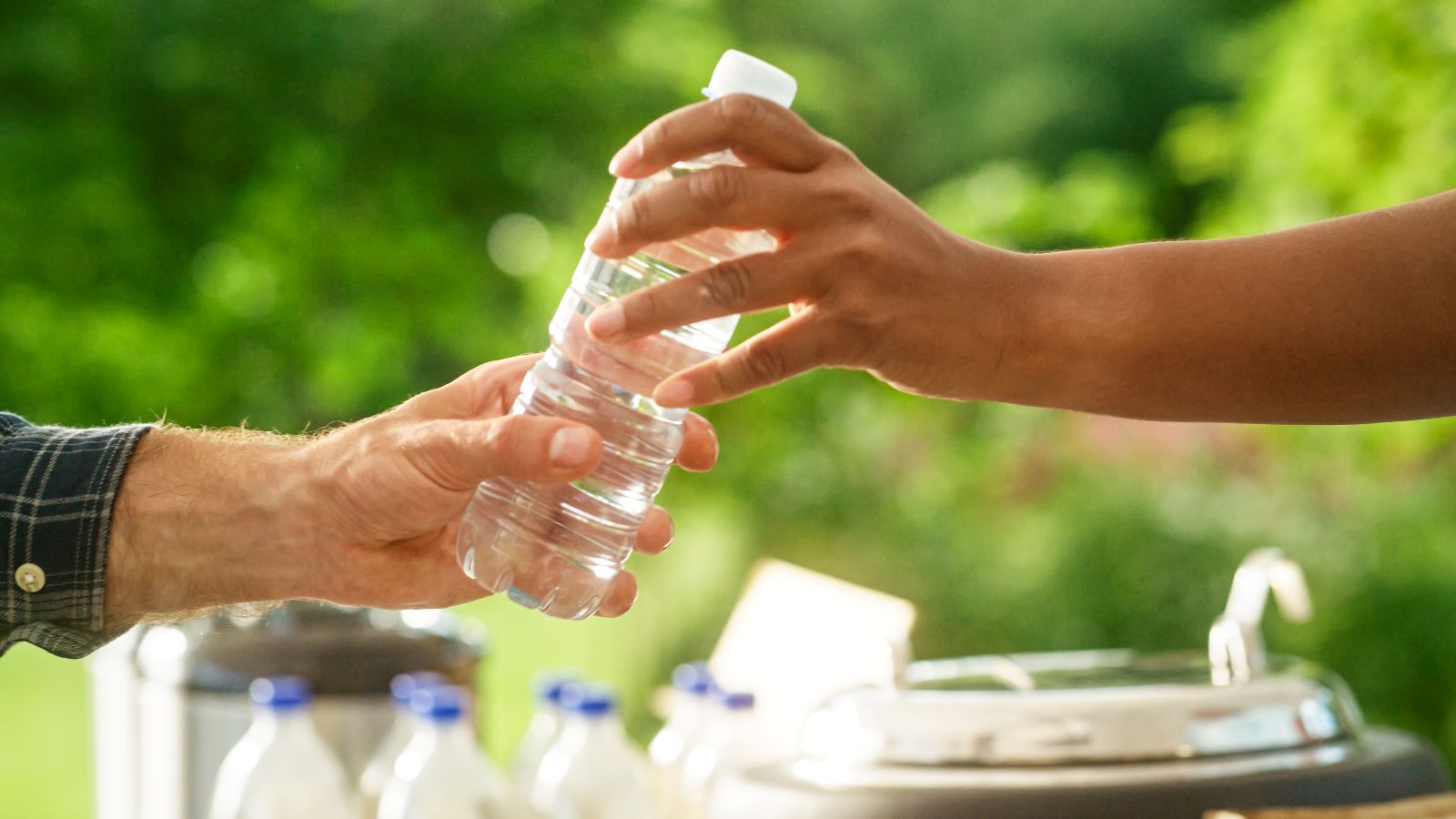<< Back
If You Drink Out of Plastic Water Bottles, Don’t Make This Mistake

February 09, 2024
Drinking lots of water is good for you, they say. That is, if it’s not in a plastic water bottle.
New research suggests that plastic water bottles contain servings of plastic microparticles.
But do those particles put your health at risk? Here’s what a doctor has to say.
The plastic in your water bottle is as small as a micron.
Using new laser techniques, biophysicists at Columbia and Rutgers universities discovered about 250,000 pieces of nanoplastics per liter of five different brands of bottled water, says Andrew Wong, MD, primary care provider for the Hartford HealthCare Medical Group in Westport.
“These are a micron in size. For reference, a strand of hair is 80 microns in width,” says Dr. Wong. “There have been studies on what’s visible to the naked eye, but not to this number.”
The pieces, he says, are polyethylene plastic molecules broken off from the bottles or the plastic filters used in production.
> Related: Are Hidden ‘Forever Chemicals’ Affecting Your Health?
Plastic won’t affect the taste, but could be dangerous to consume.
While not affecting the water’s taste or texture, it’s possible the plastic can be dangerous to consume, Dr. Wong says.
“We know certain types of plastic carcinogenic, but they’re not used to make plastic bottles. Yet, we know water bottle waste affects multiple systems in sea life,” he says.
The body can absorb the particles and even cross the blood/brain barrier to trigger cellular structure or DNA damage.
“We know cancer has increased 13% in the last 10 years in people under 50, probably the biggest consumers of bottled water,” Dr. Wong begins. “We also know the risk of colon cancer is two to four times higher in people born after 1990.”
At the same time, he notes a 15% increase in digestive disorders like inflammatory bowel and Crohn’s diseases.
“We don’t know the cause of these increases, so now need to investigate the impact of plastic water bottles,” Dr. Wong says.
3 safer ways to drink your water
There has been no move to restrict bottled water availability, but Dr. Wong suggests these options for getting your water in:
- Use aluminum or glass containers.
- Drink tap water.
- Filter water through a ceramic or carbon-based water device.
But if you do use plastic water bottles, don’t make this mistake.
Still like the ease of plastic water bottles?
“Just don’t expose them to heat or sun, like leaving the in a car during the day. The sun causes the plastic to break down,” Dr. Wong says.